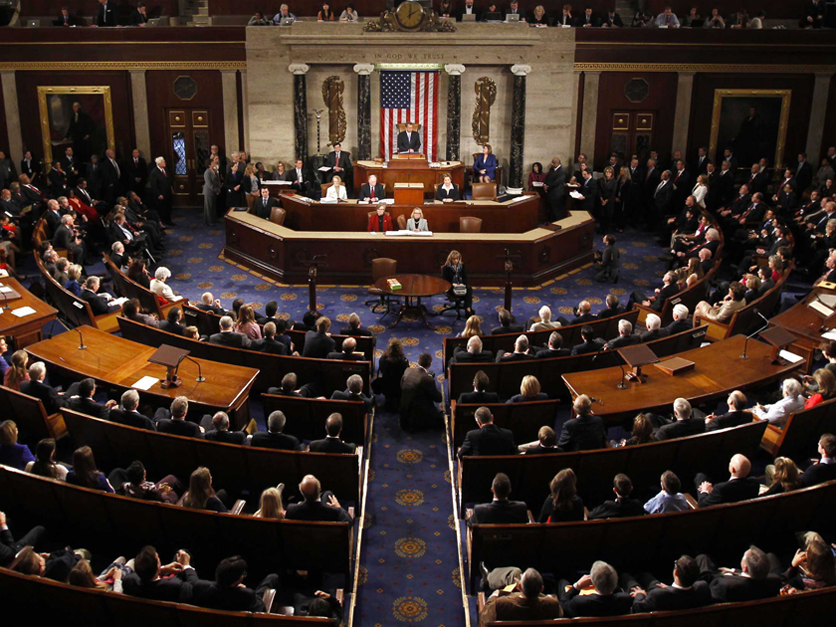The House and Senate approved a measure late Thursday to fund the federal government through Jan. 19 but could not agree on disaster relief for areas devastated by hurricanes and wildfires.
After the House approved a continuing resolution, or CR, to keep the doors of federal agencies open for about a month, the Senate shortly followed suit, on a vote of 66-32. However, with 60 votes needed for passage and facing Democratic opposition, Republicans decided to put off any consideration of the disaster measure until next month.
The House voted 231-188 for the CR, and 251-169 for disaster assistance. President Donald Trump signed the CR Friday morning before leaving Washington to spend Christmas at Mar-a-Lago.
The Senate did not debate the CR before passing it, but Democratic opponents made it clear beforehand that they were unhappy the bill contained no no long-term funding for the Children's Health Insurance Program (CHIP) or any solution for "Dreamers," undocumented immigrants who came to the U.S. as children who now face deportation. The bill includes $2.86 billion for CHIP to fund the program through the end of March.
"Republicans came up with a government funding bill at the very last minute that ignores many of our highest-priority needs, including passing the Dream Act and coming up with a long-term solution for children’s health insurance," Sen. Dianne Feinstein, D-Calif., said in a tweet Thursday. Sen. Patrick Leahy, D-Vt., said after the vote that the Senate would have to deal with those issues when it returns.
Included in the House disaster bill is language making cotton growers eligible for the Price-Loss Coverage program, creating a PLC reference price of 36.7 cents a pound for “seed cotton,” defined as “unginned upland cotton that includes both lint and seed.”
It also would lift the cap on Livestock Gross Margin insurance in order to aid dairy operations but would not seek to rewrite the unpopular Margin Protection Program. Sen. Debbie Stabenow, D-Mich., ranking member of the Senate Agriculture Committee, said earlier this week that the House had missed an opportunity to help the dairy industry.
House Agriculture Committee Chairman Mike Conaway, R-Texas, hailed passage of the disaster bill.
"While we’ve made significant strides in developing a strong crop insurance system and standing disaster programs to aid farmers and ranchers when Mother Nature strikes, multiple, back-to-back, devastating disasters require us to address current backlogs in critical emergency recovery programs, improve standing disaster programs, and target assistance to address holes in the safety net, including for our nation’s citrus, cotton, livestock, dairy, fruit and vegetable, and other impacted producers," he said in a statement.
The bill also included $3.8 billion for the Agriculture Department – $2.6 billion for crop and livestock losses resulting from hurricanes Irma, Maria and Harvey, and from wildfires. Another $541 million would be allocated for watershed and flood prevention efforts; $400 million for emergency conservation efforts to mitigate future disaster risks; and $165 million for repairs and mitigation for rural water and waste disposal systems. (More details on the legislation are here.)
House Democrats opposed both the continuing resolution and the disaster aid bills. On the floor, Democrats criticized the CR for not including permanent funding for CHIP. In the House Rules Committee earlier in the day, Democrats argued unsuccessfully in favor of including the DREAM Act in the CR to give legal protection to undocumented immigrants who came to the U.S. as children.
(The story was updated on Dec. 22 to show President Trump signed the CR into law.)
#30
For more news, go to www.Agri-Pulse.com


